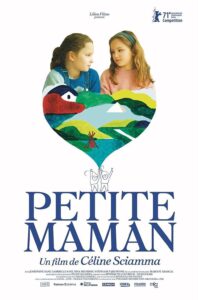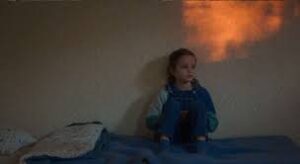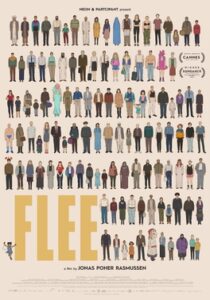Attending multiple screenings in one evening at a film festival you can’t help but bear witness to unintentional, sometimes poetic cinematic segues. They were out in full force on Tuesday evening at the FIN Atlantic International Film Festival.
First off, I attended Dementia, Dad & Me, Hannah Minzloff’s documentary about her family and her father’s struggle with Lewy Body Dementia. Hannah is an old friend and I offered her notes on a rough cut of the film, so it’s inappropriate for me to review it.
I will say that I was deeply moved watching the final cut in the cinema with an audience, and I’m sure Hannah will have all kinds of success with this very personal project.
The film shares a collection of family photos, and it struck me how much Hannah’s mother looked like her when she was young, and also how much Hannah, as a girl, looked like her own daughter. The film includes many scenes in hospitals and care facilities, which I mention because… stay tuned.
Immediately following the screening in Theatre 3, I walked down to Theatre 7 to see Petite Maman, the brand new film from Céline Sciamma, the writer-director of Portrait Of A Lady On Fire.
It opens with a scene in a nursing home, where an eight-year-old girl walks from room to room, saying good-bye to the seniors living there. Her grandmother had been a resident, but she’s just passed.
It was a startling moment of continuity between entirely unconnected films.
The girl, Nelly (Joséphine Sanz), joins her mother (Nina Meurisse) at her childhood home where they’re clearing up the grandmother’s personal effects. Nelly spends the day out in the woods where she meets another girl about the same age, Marion (Gabrielle Sanz). Though it’s not explicitly discussed that day, Nelly starts to the understand that the other girl is actually her mother as a child, that she’s somehow travelled back into the past.
Petite Maman must’ve been the ideal lockdown project. At 72 minutes it’s delightfully concise with only a few locations and a key cast of five. The twin sisters in the leads are an absolute delight — maybe the best and least affected child performances I’ve seen since The Florida Project — and through them and the magic realist premise the film provides a simple, potent conversation about grief, growth, and generational inheritance. It feels like a sharp, short film gently extended to almost full length, but without exhausting the cleverness of its concept.
It’s not too often you encounter a near perfect film, where the execution utterly matches the ambition, but here’s one.
Following that, I went back to Theatre 3 for Flee.
In the opening few minutes of this astonishing documentary, the lead character, a tween, muses about his mother. He says how he wishes he could’ve known her as a child.
The connective tissue carries over!
Flee is a rare beast, an animated documentary from Danish filmmaker Jonas Poher Rasmussen, about his friend, an Afghan refugee named Amin — some of the names in the film have been changed — who shares the story of his escape from Afghanistan in the 1980s, and the efforts of his family to reach Europe.
Though Amin’s life has changed enormously — as an adult now he speaks Danish and English, and is pursuing a post-doc at Princeton — he’s been keeping secrets from everyone around him, including his fiancé, which he finally reveals here.
The particulars of his story start to make sense as we go along, and maybe for the first time in a refugee narrative like this we see the lasting psychological and emotional damage that people who have come to the West carry with them. Sometimes that trauma isn’t even from where they fled, but it manifests in the years-long flight.
Rasmussen’s genius extends beyond the concept, into the sound design and animation. Using Amin’s first person storytelling along with scenes with voice actors he illustrates a terrifying international travelogue in a way a more traditional doc couldn’t do, also mixing in archival news footage to remind us at every turn how real this was, and how Amin’s family manages to make these huge sacrifices, with individual members often geographically removed, to find some measure of a future for them all.
The accounts of a refugee’s half life in cities like Moscow, negotiating with corrupt officials and law enforcement, and dealing with predatory human traffickers to find their way out, it’s a hellish vision. This is balanced with Amin’s present day life, and not let his (entirely understandable) lingering anxieties sabotage his chances for happiness with his partner.
The fact he self-identifies as gay is another element of this story, his concerns around how his family will react to his identity, and what that means for his new life in Denmark.
Flee is entirely engaging and innovative, a remarkably effective marrying of material and storytelling technique.















